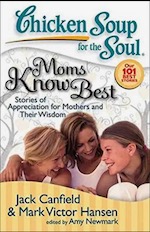Have you tried writing through trauma? Find out how you might turn those early writings into publishable stories.
by Nanette Thorsen-Snipes
The year was 1975—a year fraught with fear.
During an argument one Friday night, my former husband pulled a gun on me, and as I watched in horror, he loaded each chamber. With each click, my life seemed to tick away, speeding toward my demise. My heart thumped soundly in my chest. I begged it to stop.
In one moment in time, I asked God to save my two little boys and me.
Domestic Strife Began My Journey to Writing Through Trauma
My husband’s drinking and unrelenting clashes with me led up to this day. Though I wondered if I’d live to see another day, I prayed I would. At the last moment, words seemed to drop into my mind. “I love you,” I said. “I’m not going to leave.”
He paused and lowered the gun aimed at my mid-section. I sucked in a quick breath. It was over—for the moment.
That night, I gathered the things I needed, and I left with my two boys on Monday morning, long after he’d gone to work. As far as I knew, there were no safe havens for women that year, so I struck out on my own.
My story sounds like it has nothing to do with writing, but it does. The starting point of my writing career began years after I left my former husband.
Even My Early Writing Attempts Were Traumatic
As early as the fourth grade, I exhibited a hint of writing prowess. I wrote a Christmas poem, and my teacher thought it was impressive until she showed another teacher who announced that I’d copied it. My teacher accused me of lying. At nine years old, my world was shattered—I would never write again!
And I didn’t attempt to write anything until I was in high school. But it happened once more! My English teacher accused me of plagiarism after reading my book report. Only when I wrote a fictional story about my classmates did he believe me.
A year later, he signed my yearbook, saying he looked forward to my becoming a writer.
My Husband’s Suicide Brought My Life to a Grinding Halt
As I was dabbling in a writing career, my former husband committed suicide. Guilt boiled over like an angry pot of water, and I came to a grinding halt.
Though I had four kids, new husband, and a cat, I felt a despondency I couldn’t contain welling up in me. I fixated on my previous life and focused on my losses—my home where I’d brought my two babies, my dog, my friends, even my husband. Where had I gone wrong?
In one moment in time, on a two-lane road, I recall thinking how easy it would be to pull in front of a tractor-trailer and end it all. This drastic thought convinced me I needed counseling, and I spent more than a year trying to recover some sense of who I was.
In Counseling, I Learned to Write Through Trauma
While in counseling, the counselor asked me to write down my thoughts. I channeled my deep-seated emotions into poetry. At first, the words rambled across the page and made little sense. Eventually, though, a pattern became evident. The words began to make sense to me.
Then I started giving my poetry to people who’d lost loved ones through cancer or other means. My thoughts became more positive when I realized my writing helped other people resolve, or peacefully live with, their issues. I hoped to provide some measure of comfort and peace.
In the process of writing for others, I helped myself. (Find out more about how writing can help you weather a crisis.)
In Writing Through Trauma, I Became the Heroine
My writing career began when I wrote a short fictional story about my husband (only for my eyes), and in the writing process, I became the heroine. This story satiated the desire to get back at someone who had hurt me on such a deep level.
I finally wrote the true story of the scene when my husband threatened me, and it was published long after he committed suicide. But I wanted to move on—to find a niche that would allow me to express other experiences.
So, I dipped my toes into writing that I could pass on to the next generation.
Writing Helped Me Laugh At Myself, Love Myself, and Forgive Myself
The writing that finally pulled me out of the pits was three-fold:
- poetry,
- devotions,
- and family stories.
I was able to put my life out there—the good, the bad, the ugly, and the comical—the results in me were amazing. I could laugh at myself, love myself—forgive myself. And move on.
At first, the stories I wrote were accepted by small Sunday school magazines, and then I branched out to newspaper columns, magazine articles, and finally, to compilation books. My stories now reside in about sixty-five anthologies. Two stories are coming out—Sweet Tea for the Soul: Comforting Stories for Moms, Peachtree Publishers, April 2021, and Christmas Cat (working title), Revell, division of Baker Publishing, fall 2022.
Writing Prompts to Help In Writing Through Trauma
During my emotional struggle, I came upon some tips that helped me navigate tough times; to bring some sense to the world around me. They are simple tips, but they guided me through.
1. Journal to Release Those Inner, Hidden Thoughts
Start where you are. For instance, if you aren’t through your life trauma, you may want to start small. Release those inner, hidden thoughts. Write freely—anything that comes to mind.
These thoughts may never become part of your professional writing, but the action will release you to write other things. The act of journaling helps you unleash your inner thoughts—the negative ones, and eventually, the positive.
I like to start by listing my blessings: my life, my husband, kids and grandkids, my talents, etc. Begin with a short paragraph, and add to it daily. For me, putting those first words together led me to understand who I was again. It released me to be me.
2. Use Writing Prompts to Write Through Trauma
When you’re dealing with trauma of any sort, you sometimes come to a sudden halt when nothing seems to flow from your brain. I know; I’ve been there.
Writing prompts are a way to kickstart your writing—any writing. Begin with a simple idea, a word, a phrase, and move on from there. Writing prompts may be used in both nonfiction and fiction.
For instance, take a word like “sky” and work around it.
- The stars became fireworks lighting up the night sky.
- The girl watched the clouds scoot across a barren sky.
- The sky started leaking rain, mingling with my tears.
You may even want to consider using an idea I got from a book in the 1980s called Writing the Natural Way by Gabriele Lusser Rico. In it, she suggests that you take a word and circle it. You can use the word “sky.”
Then make spokes from the word like “fireworks,” “barren,” “leaking rain,” “mingling with tears.” From those words make more spokes and add more words and phrases until your mind starts churning out a story, article, or poem.
3. Start Small to Get Your Creative Juices Flowing
For instance, you can write a small portion of your life’s story. Write it so your experience will uplift anyone who reads it.
You can start small, with local newspaper columns, children’s magazines, or Sunday school magazines, even something like greeting cards.
4. Write a Slice-of-Life Story
Write an exciting, heartwarming, or funny story about one of your experiences or someone you know. Be aware that editors love humorous stories. Write the story so your reader feels something emotionally: laughter, tears, or just wow them!
Begin with action. Start with one of the most interesting, exciting, moving parts of your story. Grab the reader before they have a chance to stop reading.
Write from your heart. Your story will reach many people who’ve experienced something similar to you. Don’t be afraid to tell your story. Your story will definitely reach someone who needs to hear it.
In fact, a story I once wrote about my mother’s battle with cancer about thirty years ago touched a woman’s heart, and she contacted me. We began emailing, and every year since, she sends me something for Christmas.
Or, the story I wrote about my young son giving azaleas from my bush to a little girl in his first-grade class whose parents were going through a difficult divorce. That story was published in a number of places, including Chicken Soup. You will touch people’s hearts and minds.
Keep your story to 1,200 words or less. Rewrite as many times as needed to make the story work. As in all writing, rewriting is the key. Continue to rewrite until your story shines.
Chicken Soup for the Soul always welcomes these types of stories. Plus, they provide a way to publication and credits, and they pay $200 per story, which is a good incentive itself.
Check their website, Guidelines for Submissions | Chicken Soup for the Soul for all the details.
5. Try Poetry to Draw Your Emotions Out
Don’t rule out poetry, especially free verse, which has a lilt and sway to it that I love.
With free verse, you don’t need to use regular meter or rhyming (though you may choose to use internal rhyme). Free verse provides artistic, meaningful expression. But the fact that it doesn’t follow any rule makes it easy to work with.
I once wrote a simple poem when I attended a writers’ conference in the north Georgia mountains. After the congregants had finished supper, we headed back to our cabins. As I walked down a dark path, pondering my life’s experiences, I was awestruck by how close the moon seemed and how its light filtered down the sides of the mountaintop, eventually stopping at my feet.
While the first poem, before several rewrites, was rambling and simple, the final poem makes the reader envision where I was, both physically and mentally:
Candlelit Canopy
I saw the moon,
Hung like a china plate
Against a midnight tablecloth,
Its shimmering white
Silvering the edges
Of night clouds,
Sluicing down a mountainside,
Stopping at my feet.
Only then
Under the candlelit canopy
Did I know that
God’s light
Always shines,
Even in a world
Of darkness.
-Nanette Thorsen-Snipes
© 1987
Whatever life trauma you’ve experienced, writing can provide real-time relief, joy, and even monetary rewards, beginning a lifetime of writing success. Don’t let dread take hold. You can do it! Consider striking out on a new adventure today. Begin the first day of the rest of your life! You are able!
* * *
 Nanette Snipes is a freelance editor, proofreader, and writer. She has contributed stories/devotions to more than sixty books (Guideposts Miracle series, Chicken Soup for the Soul, New Women’s Devotional Bible, among others), and has written dozens of magazine articles, devotions, and children’s stories.
Nanette Snipes is a freelance editor, proofreader, and writer. She has contributed stories/devotions to more than sixty books (Guideposts Miracle series, Chicken Soup for the Soul, New Women’s Devotional Bible, among others), and has written dozens of magazine articles, devotions, and children’s stories.
Nanette has published in Georgia Magazine and currently edits their twenty-plus monthly newsletters.
She specializes in editing memoirs, children’s picture and chapter books, and devotions.
For more information on Nanette and her work, see her website, or connect with her on LinkedIn.
Small Miracles for Women: Each and every woman is special and unique, yet as women we all share a common bond through our collective experiences of loving and learning. And sometimes fate steps in to miraculously change the lives of women in unforgettable ways, affecting them as wives, mothers, daughters, sisters, aunts, lovers, and friends. Could they be messages from a higher power?
Whether these miracles come during times of difficulty or celebration, they represent extraordinary opportunities to explore the wonders life has to offer. One of the most popular books in the Small Miracles series, this beautifully repackaged and expanded volume collects 50 inspirational, unforgettable, and even divine stories of coincidence experienced by women from all walks of life.
Available on Amazon.
 Chicken Soup for the Soul: Moms Know Best: Mothers everywhere will be amused and inspired by these 101 stories of appreciation for mothers and their wisdom.
Chicken Soup for the Soul: Moms Know Best: Mothers everywhere will be amused and inspired by these 101 stories of appreciation for mothers and their wisdom.
Moms really do Know Best… even the kids admit it! “Mom will know where it is…what to say…how to fix it.”
Enjoy these 101 favorite stories from Chicken Soup for the Soul’s library on the pervasive wisdom of mothers everywhere, with stories written by mothers and their children that:
- celebrate the special bond between mothers and children
- recognize the hard work that goes into being a mother every day
- illustrate mothers’ unerring wisdom about everything from the mundane to the life-changing
Available on Amazon.
Featured image by Judit Peter from Pexels.


Thank you for sharing your story and how writing helped you. I wrote through my trauma as well, and I think it better than any counseling I’ve had.